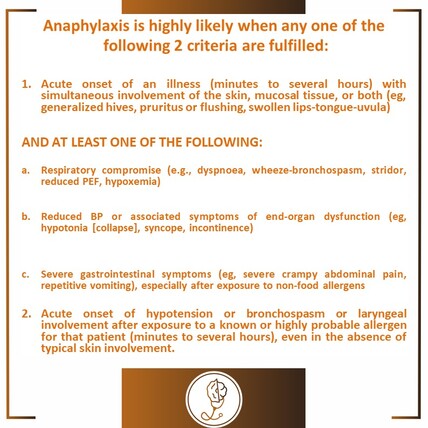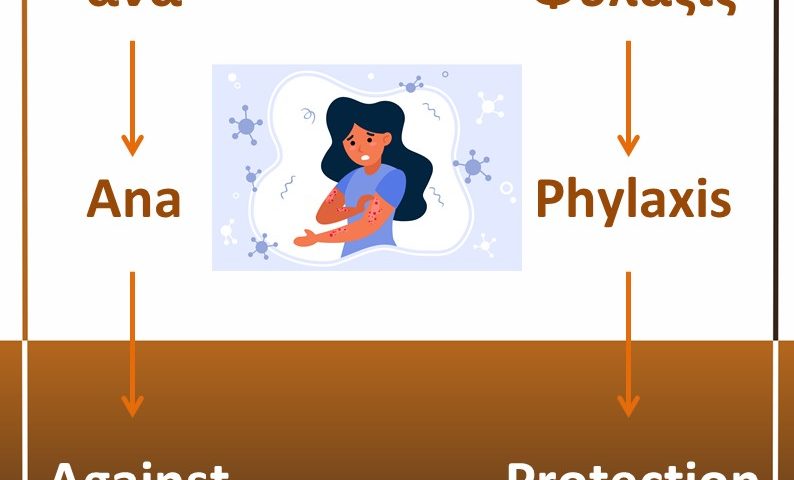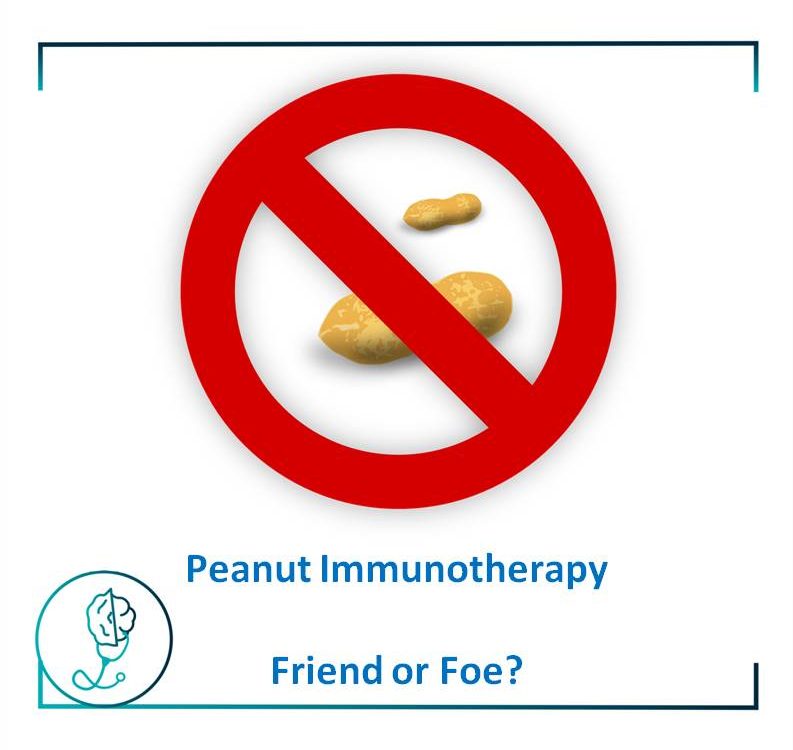Anaphylaxis

Peanut Allergy and Household Dust
23/03/2021
Probiotics
08/04/2021Sometimes, when having an 𝐚𝐥𝐥𝐞𝐫𝐠𝐢𝐜 𝐫𝐞𝐚𝐜𝐭𝐢𝐨𝐧, it can become a more severe reaction.
The most severe allergic reactions are called 𝐀𝐧𝐚𝐩𝐡𝐲𝐥𝐚𝐱𝐢𝐬.
The definition of 𝐀𝐧𝐚𝐩𝐡𝐲𝐥𝐚𝐱𝐢𝐬 is not uniform worldwide.
For you to have an idea, the World Allergy Organization (WAO), the World Health Organization (WHO), the American Academy of Allergy, Asthma, and Immunology (AAAAI), the EAACI (𝘌𝘶𝘳𝘰𝘱𝘦𝘢𝘯 𝘈𝘤𝘢𝘥𝘦𝘮𝘺 𝘰𝘧 𝘈𝘭𝘭𝘦𝘳𝘨𝘺 𝘢𝘯𝘥 𝘊𝘭𝘪𝘯𝘪𝘤𝘢𝘭 𝘐𝘮𝘮𝘶𝘯𝘰𝘭𝘰𝘨𝘺) and the Australasian Society of Clinical Immunology and Allergy (ASCIA), all have slightly different definitions.
The one I like the most is actually the ASCIA one:
"𝘈 𝘳𝘢𝘱𝘪𝘥𝘭𝘺 𝘦𝘷𝘰𝘭𝘷𝘪𝘯𝘨, 𝘨𝘦𝘯𝘦𝘳𝘢𝘭𝘪𝘴𝘦𝘥 𝘮𝘶𝘭𝘵𝘪-𝘴𝘺𝘴𝘵𝘦𝘮 𝘳𝘦𝘢𝘤𝘵𝘪𝘰𝘯 𝘤𝘩𝘢𝘳𝘢𝘤𝘵𝘦𝘳𝘪𝘴𝘦𝘥 𝘣𝘺 𝘰𝘯𝘦 𝘰𝘳 𝘮𝘰𝘳𝘦 𝘴𝘺𝘮𝘱𝘵𝘰𝘮𝘴 𝘰𝘳 𝘴𝘪𝘨𝘯𝘴 𝘰𝘧 𝘳𝘦𝘴𝘱𝘪𝘳𝘢𝘵𝘰𝘳𝘺, 𝘤𝘢𝘳𝘥𝘪𝘰𝘷𝘢𝘴𝘤𝘶𝘭𝘢𝘳 𝘢𝘯𝘥 𝘰𝘵𝘩𝘦𝘳 𝘴𝘺𝘴𝘵𝘦𝘮𝘴 𝘴𝘶𝘤𝘩 𝘢𝘴 𝘵𝘩𝘦 𝘴𝘬𝘪𝘯 𝘢𝘯𝘥/𝘰𝘳 𝘎𝘐 𝘵𝘳𝘢𝘤𝘵."
Given this, how do we know it is 𝐀𝐧𝐚𝐩𝐡𝐲𝐥𝐚𝐱𝐢𝐬 or not?
Have a look at the table and image attached to this post.

What to do if you think you, or your child, are having an anaphylactic reaction?
- If you are sure it is, give 𝐀𝐝𝐫𝐞𝐧𝐚𝐥𝐢𝐧𝐞.
- If you are unsure it is, STILL GIVE 𝐀𝐝𝐫𝐞𝐧𝐚𝐥𝐢𝐧𝐞.
- If you are sure it is not, ONLY in this case, give 𝐀𝐧𝐭𝐢𝐡𝐢𝐬𝐭𝐚𝐦𝐢𝐧𝐞𝐬.
- In ALL circumstances (or if you don't have an Adrenaline AutoInjector), 𝐜𝐚𝐥𝐥 𝟗𝟗𝟗 and ALWAYS ask for 𝐡𝐞𝐥𝐩.
It is important to know that 𝐀𝐧𝐚𝐩𝐡𝐲𝐥𝐚𝐱𝐢𝐬 is a 𝐫𝐚𝐫𝐞 𝐞𝐯𝐞𝐧𝐭, and most times, it 𝐃𝐎𝐄𝐒 𝐍𝐎𝐓 𝐥𝐞𝐚𝐝 𝐭𝐨 𝐝𝐞𝐚𝐭𝐡.
In fact, recently published research said there had been a significant increase in hospital admissions with Anaphylaxis but a decrease in deaths.
This seems like a contradiction, but it is not.
Why is that?
- On the one hand, we know there is a significant increase in the incidence of allergies, so naturally, the number of Anaphylactic cases will increase.
- But on the other hand, the health care professionals' awareness has increased, leading to better recognition and prescription of appropriate medication.
I will put my hands down, and agree with whoever tells me what is done, is still not enough.
The bottom line is:
- 𝐑𝐞𝐜𝐨𝐠𝐧𝐢𝐬𝐞 it Fast.
- 𝐀𝐜𝐭 Fast.
- Have your 𝐦𝐞𝐝𝐢𝐜𝐚𝐭𝐢𝐨𝐧 with you AT ALL TIMES!
- Ask for 𝐇𝐄𝐋𝐏!


